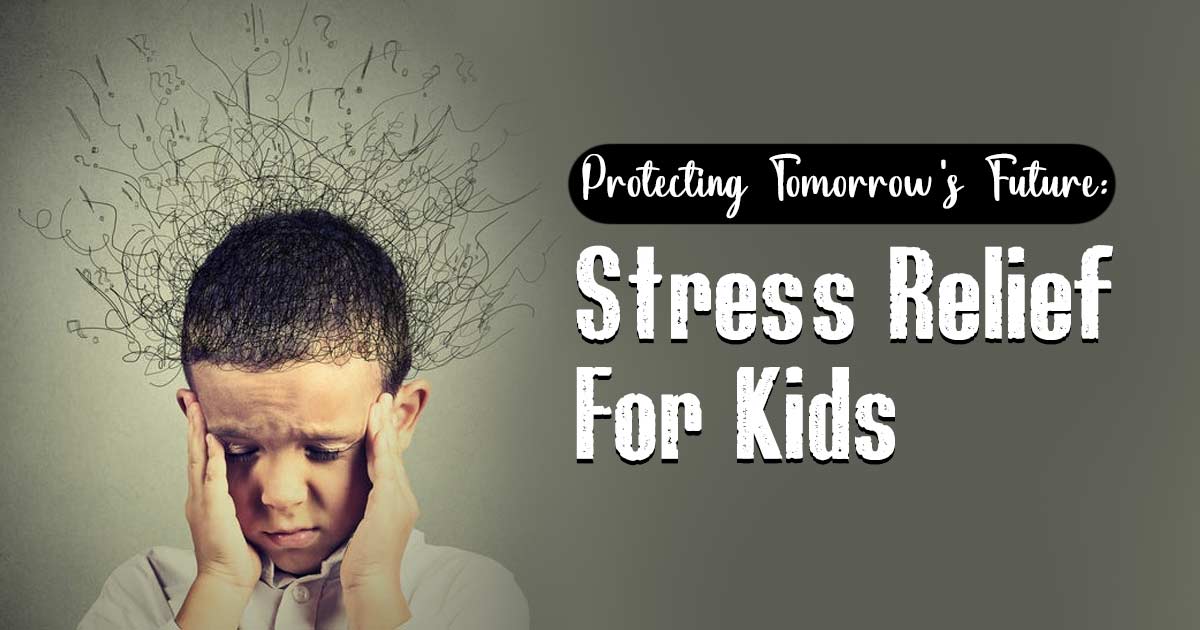Stress, a natural response to life’s challenges, affects individuals of all ages. However, children, in particular, are vulnerable to its profound and lasting effects on their physical, emotional, and cognitive development. Recent years have seen an increasing recognition of the importance of addressing stress in children, equipping them with the necessary tools and support to cope effectively.
Understanding Chronic stress In Children
Chronic stress in children encompasses the physiological and psychological responses to perceived threats, challenges, or environmental changes. Like adults, children experience different types of stress.
Acute stress refers to short-term stress triggered by specific events like school tests, arguments with friends, or minor injuries. In contrast, chronic stress is long-term and often results from ongoing issues such as family conflicts, parental substance abuse, financial difficulties, etc.
Emerging studies also confirmed children experience stress due to academic pressures, peer pressure, and bullying, as well as over-scheduling with numerous extracurricular activities, leaving little room for relaxation.
Stress in children can have profound consequences, impacting both their physical and emotional well-being. Physically, chronic stress weakens the immune system, leads to growth and developmental delays, and disrupts sleep patterns. Emotionally and psychologically, it increases the risk of anxiety and depression, causes behavioral problems, and can lower self-esteem, affecting their overall mental health and emotional development.
Importance Of Addressing Stress In Children
Addressing stress in children is paramount to prevent the development of long-term mental health issues. Providing children with healthy coping strategies and support can significantly reduce their risk of experiencing anxiety and depression in adulthood.
Effective stress management contributes to a child’s ability to concentrate, learn, and perform well in school. Addressing stress early can enhance a child’s academic performance and future opportunities.
By teaching children to manage stress effectively, we help them build resilience. They learn to bounce back from setbacks, adapt to life’s challenges, and acquire a valuable life skill essential for their future well-being.
Recognizing The Warning Signs Of Stress In Children
Recognizing the warning signs of stress in children is crucial for early intervention and support:
- Behavioral changes, like increased irritability or withdrawal
- Frequent physical complaints, such as headaches or stomachaches
- Changes in sleep patterns, including insomnia or nightmares
- Decline in academic performance
- Loss of interest in previously enjoyed activities
- Increased sensitivity or tearfulness
- Regression in behavior, like bedwetting
- Frequent mood swings or outbursts
- Social withdrawal and isolation
- Changes in eating habits, like loss of appetite or overeating
Tips For Addressing Chronic Stress In Children
Consider the following tips to help address stress in children:
- Encourage open communication with children.
- Promote a healthy lifestyle through balanced diet, exercise, and sufficient sleep.
- Avoid overscheduling with too many extracurricular activities.
- Provide stress education to help children understand and manage stress.
- Offer access to counseling services or mental health professionals.
- Teach mindfulness and relaxation techniques to help children cope with chronic stress effectively.
Role Of Healthcare Professionals In Addressing Stress In Children
Healthcare professionals, including pediatricians and child psychologists, have a pivotal role in addressing stress in children. Regular check-ups and assessments enable healthcare professionals to detect early the warning signs of stress in children, allowing for timely interventions.
For children experiencing severe stress or mental health disorders, therapeutic interventions such as cognitive behavioral therapy (CBT) or play therapy can be effective in managing and reducing stress.Stress in children poses significant concerns, given its potential for long-lasting physical, emotional, and cognitive consequences. Recognizing the causes of stress in children and proactively addressing them is essential.
By providing parental support, educating children and schools about stress, teaching coping strategies, and involving healthcare professionals when necessary, we can help children develop the resilience needed to thrive in an increasingly complex world. Addressing stress in children is not merely an option; it is an ethical and moral imperative for the well-being of future generations.




























